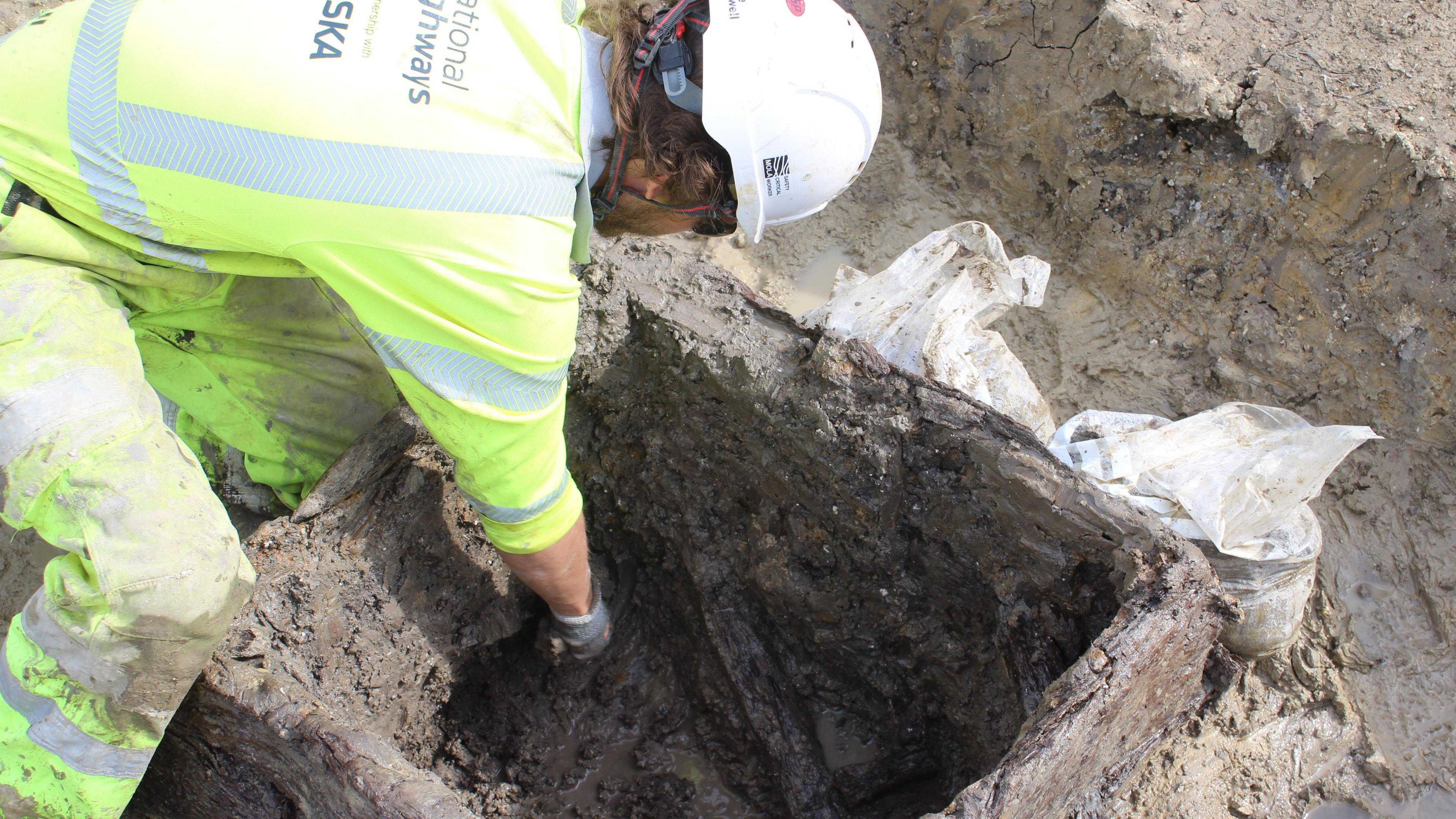Army cadets help uncover ancient artefacts
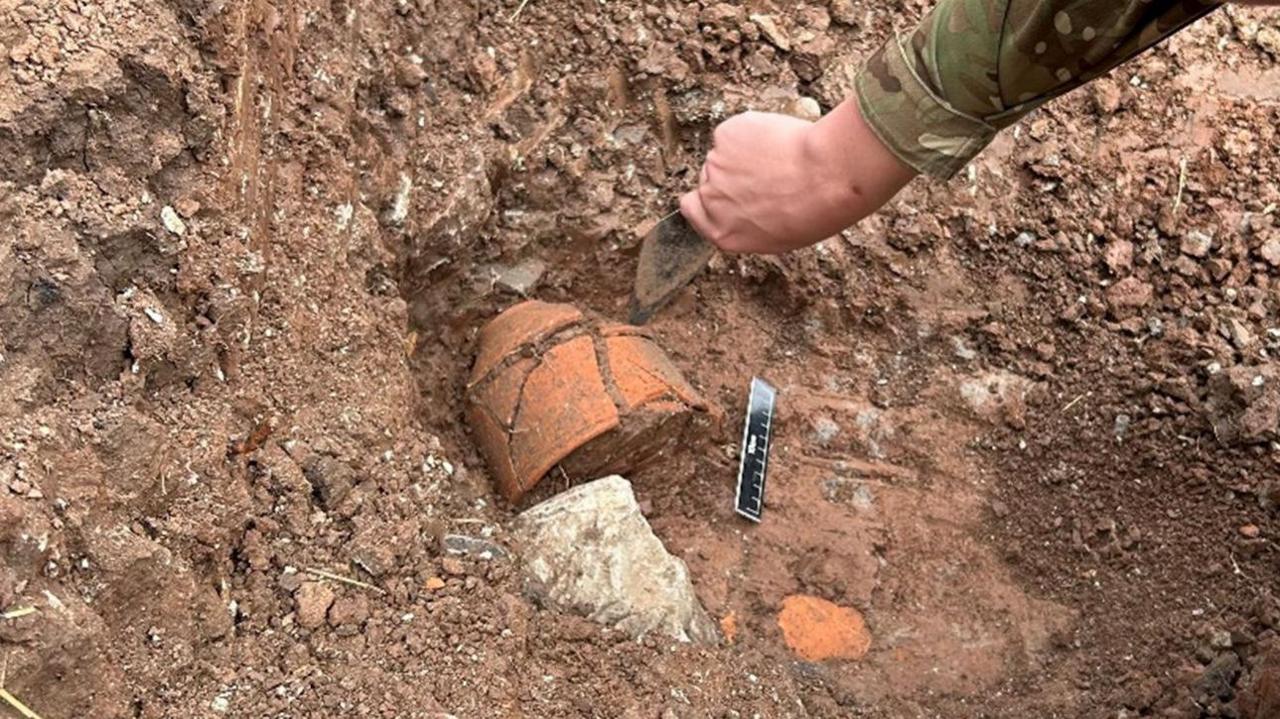
More than 650 ancient artefacts were found during the dig
- Published
An ancient hillfort containing more than 650 artefacts has been uncovered by Army cadets working with archaeologists.
C Company Gloucestershire Army Cadet Force joined experts from the Royal Agricultural University (RAU) for the dig at a site near Newnham in Gloucestershire.
Although the findings are yet to be analysed, it is thought that they come from the Severn Valley, Dorset and Oxford, and could date back to about 150AD.
A report on the findings will be submitted to the Historic Environment Record.
The team searched the area where an anomaly in the ground had previously been seen in aerial images.
Two trenches were opened for the excavation, where significant amounts of Roman pottery, material from the Iron Age, and bones potentially dating back to 150AD were found.
A piece of stone archway was also uncovered, indicating that it was likely a significant structure was once present.
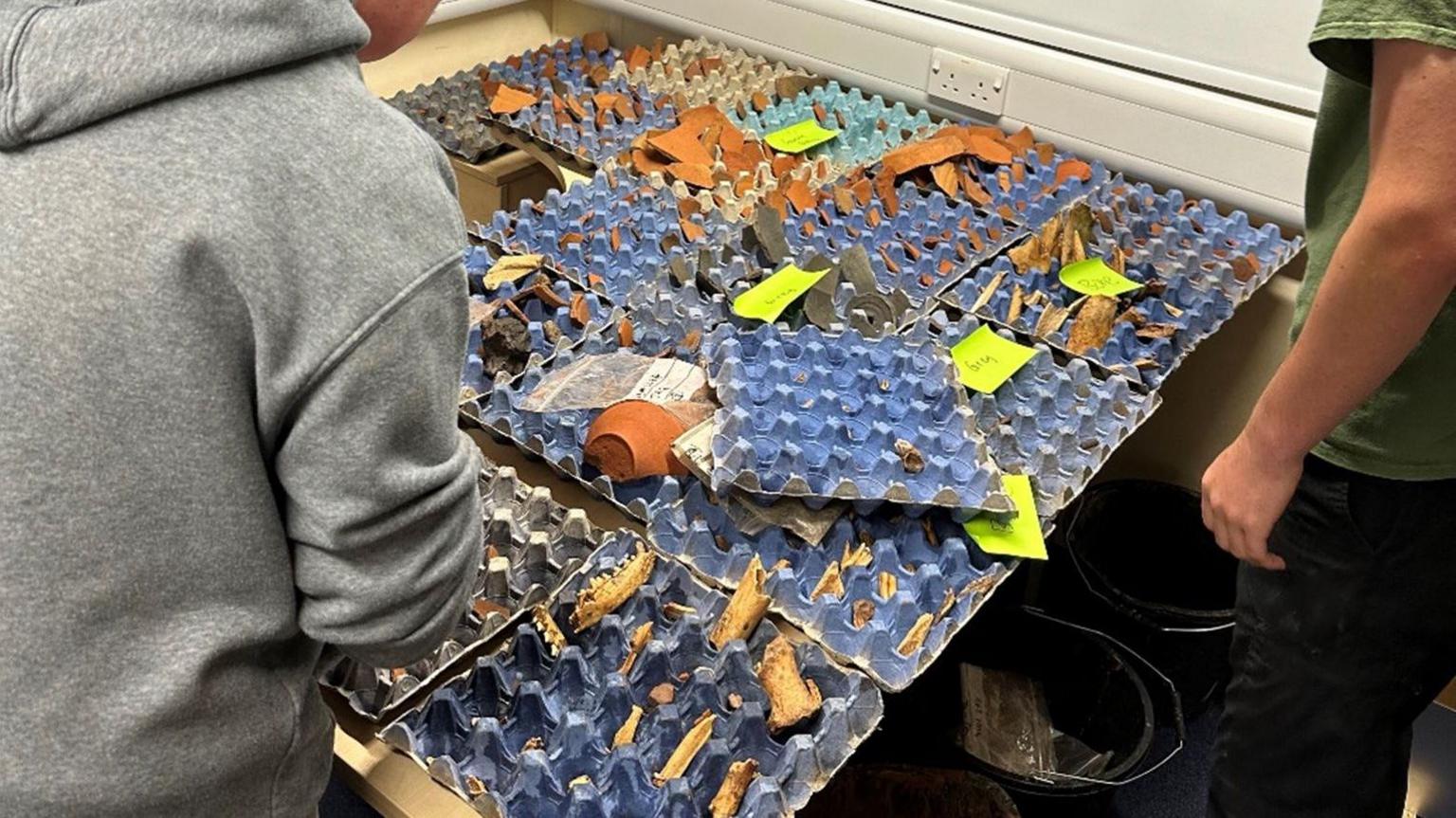
It is thought the items found come from the Severn Valley, Dorset and Oxford
Prof Mark Horton, from the RAU in Cirencester, said the area has "long intrigued" historians and archaeologists.
“We are now able to show that this was likely to be a site occupied over a significant period of time, with finds from the late Iron Age and mid-second century, with more than 650 finds of pottery, bone, and iron slag.
“The features revealed by the dig included two ditches. One was more than two metres deep and had been cut through bedrock, while the second was shallower with laid pavements on either side.
"This ditch contained a dog jaw and wild boar tooth," he added.
Sgt Instructor Ben Trimble, Lydney Army Cadet Force Detachment Commander, said the cadets "thoroughly enjoyed" and "relished" the opportunity.
Get in touch
Tell us which stories we should cover in Gloucestershire
Follow BBC Gloucestershire on Facebook, external, X, external and Instagram, external. Send your story ideas to us on email or via WhatsApp on 0800 313 4630.
Related topics
- Published2 September 2024
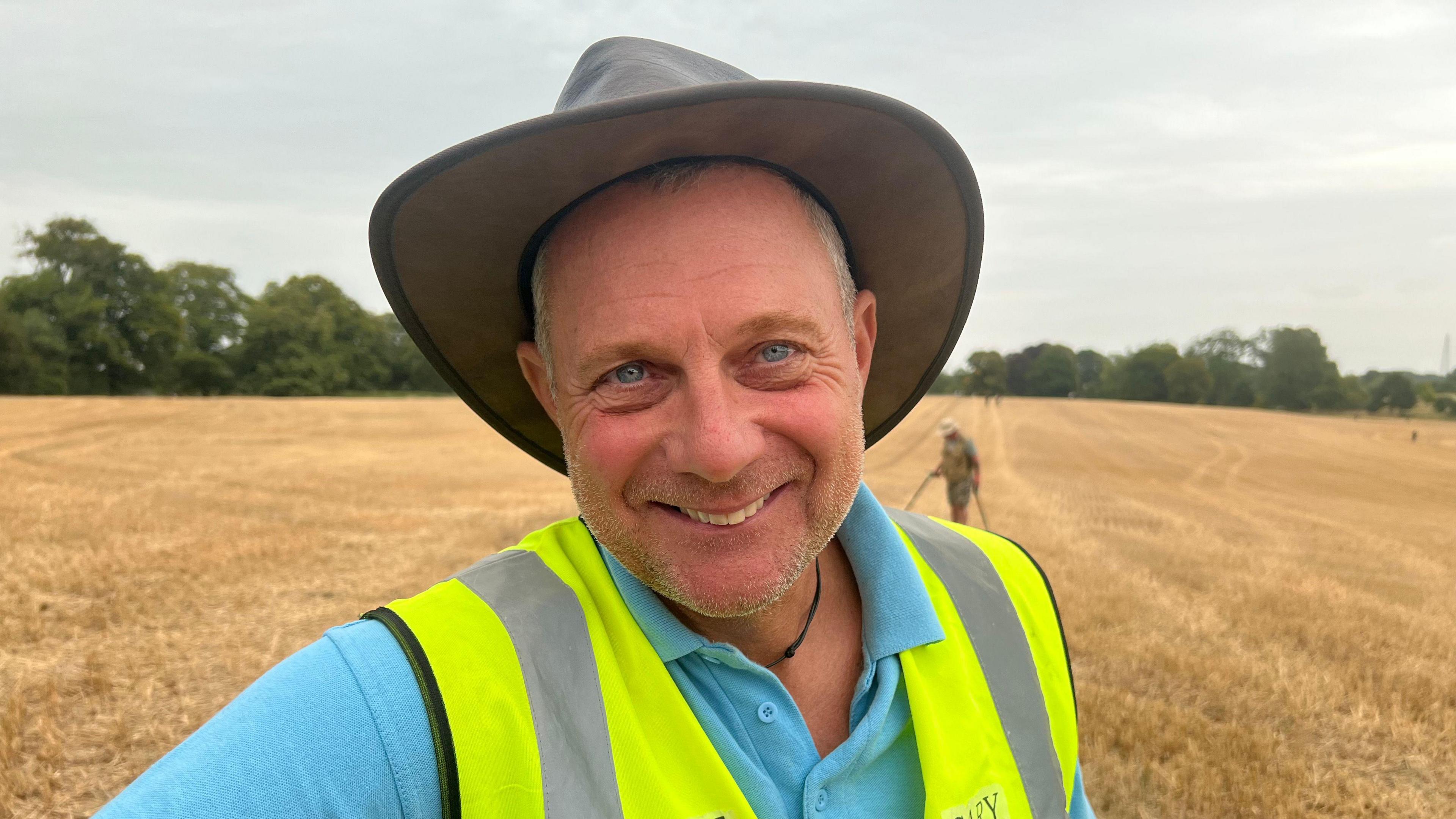
- Published1 September 2024
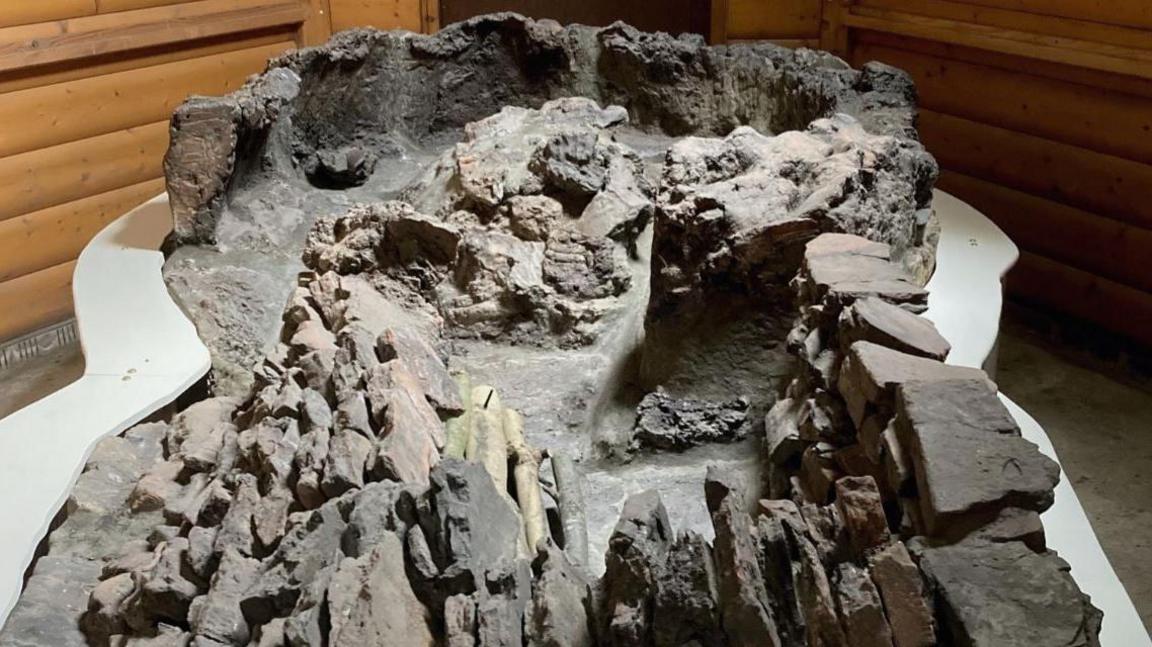
- Published19 August 2024
